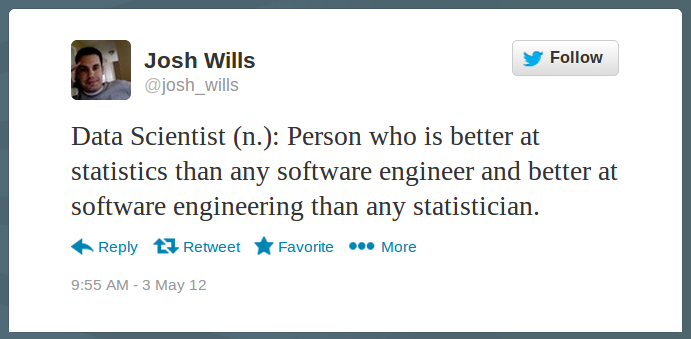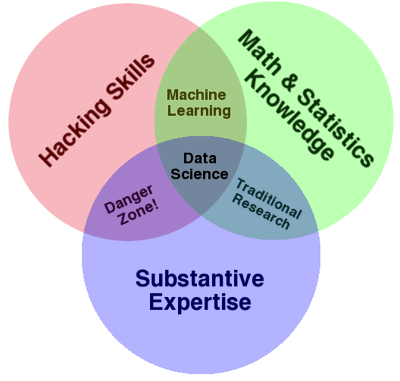Extracting meaning from data is nothing new, but the world has really woken up to the value of predictive analytics and machine learning… preference and recommendation engines, effective marketing, spam filters that actually work, better medicine, even self-driving cars. This new focus has created a scramble as companies have tried to find people with the skills needed to get them into the predictive game. This scramble has led to two problems: 1) what, exactly am I looking for (not just programmers and not statisticians), and 2) where are these people?
Emergence of the Data Scientist
The world has settled on the terms Data Science and Data Scientist. HBR famously referred to the Data Scientist as the sexiest job of the 21st century.
I like the term because its practitioners are applying the scientific method while working in the medium of data–creating and validating hypotheses, making discoveries, and improving life in myriad ways.
A data scientist is more than a statistician:
- The data is not sitting in nice, neat SAS datasets. It’s in unstructured social media networks, streaming off of sensors, or in various other messy forms.
- The machine learning algorithms bringing the breakthrough innovations are more computational than mathematical.
- Implementation of the insights coming from the data require significant programming.
A data scientist is more than a programmer:
- Programmers don’t normally think in terms of designing and executing experiments.
- They must understand what data these experiments require and what can be inferred from the data.
- The big data aspect requires specialized skills in distributed computation.
So, What is a Data Scientist?
This rare combination of skills–and the hype surrounding the field–has led to some fun definitions of the data scientist:
These snarky definitions have been pretty popular as well:
- “Data Scientist is a Data Analyst who lives in California”
- “A data scientist is a business analyst who lives in New York.”
- “A data scientist is a statistician who lives in San Francisco.”
- “Data Science is statistics on a Mac.”
Hype and cynicism aside, the world needs more technologists that can program, handle data, and have a mastery of inferential statistics. There is an incredible need and the work is intellectually stimulating. This has motivated many developers to learn to be data scientists, myself included.
Next up… approaching the data science field as a developer.


